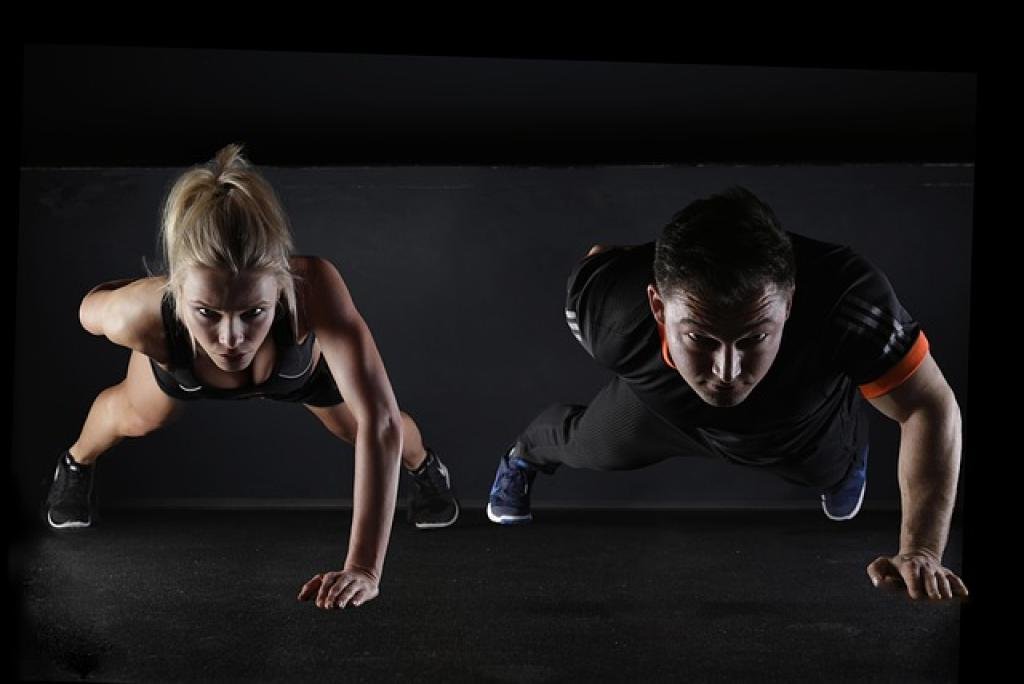We independently test and review fitness products using a research-based approach. If you buy through our links, we may earn a small commission at no extra cost to you. Read our Disclosure
Sports nutrition is key for those who are active or athletes. It gives them the right nutrients, energy, and fluids to perform well. Getting the right pre workout and post workout nutrition is crucial. It helps you feel energized, improves your performance, and aids in recovery. Knowing about nutrient timing and using smart strategies for fueling before and after exercise can help you reach your fitness goals.

Understanding the Importance of Pre Workout and Post Workout Nutrition
Getting the right nutrients at the right time is key to boosting your workout performance and helping your muscles recover. Before you hit the gym, eat a meal that gives you energy, helps you exercise better, and keeps your muscles strong. Focus on carbs, the main fuel for your body during exercise.
Carbohydrates: The Key to Pre-Workout Nutrition
Carbs are vital for pre-workout meals. They give you energy, keep muscle glycogen stores full, and help insulin levels go up. Eating carbs before you exercise also helps keep your muscles from breaking down and supports growth.
It’s best to eat a pre-workout meal or snack 1-2 hours before your workout. This lets your body use the nutrients during your exercise. Waiting too long means you might not have enough nutrients when you need them.
A good pre-workout meal should have carbs, some protein, and a bit of healthy fat. This mix keeps your energy up, supports muscle function, and prevents stomach issues during your workout.
After your workout, focus on recovery. Eating protein, complex carbs, and healthy fats helps fix muscle damage, refill glycogen stores, and aid recovery. The best time for a post-workout meal is 30-60 minutes after your session.
By focusing on both pre-workout and post-workout nutrition, you can get the most out of your training. This supports your fitness goals, whether you want to build muscle, increase endurance, or boost overall performance.
The Role of Hydration in Pre and Post-Workout Routines
Proper workout hydration is key for both pre- and post-workout routines. When you exercise, you lose fluids and electrolytes through sweat. This can affect your performance and recovery if not replaced. Keeping up with pre-workout hydration helps control body temperature, supports muscle function, and keeps blood volume up. These are crucial for doing your best during exercise.
After exercising, it’s important to post-workout hydration and replace lost electrolytes. This helps start the recovery process, reduces muscle soreness, and gets your body ready for the next workout. Using drinks or supplements with electrolytes can help with fluid replacement and electrolyte balance.
The Importance of Proper Hydration
Studies show that our bodies are about 60 percent water. Losing just 2 percent of our water can hurt our endurance exercise performance. Dehydration can also affect how well we do in anaerobic exercises.
Not drinking enough water can lead to health problems like heat injury, kidney issues, seizures, and hypovolemic shock. How much water you need depends on your body type, exercise type, and the weather.
Hydration Guidelines for Workouts
- Start by aiming for half your body weight in ounces as a guideline for daily water intake.
- Hydrate steadily every 5 to 10 minutes during and after a workout.
- Consume 2 to 3 cups of fluid 2 hours before a workout.
- During a workout, aim for 16 to 32 ounces of water per 30 to 60 minutes.
- To replenish electrolytes, consider consuming a sports drink or electrolyte packet during longer or intense workouts.
- Rehydrate after a workout by drinking 24 ounces of water for each pound lost from sweat.
| Fluid Intake Guidelines | Before Workout | During Workout | After Workout |
|---|---|---|---|
| Water | 2-3 cups (16-24 oz) | 16-32 oz per 30-60 mins | 24 oz per pound lost |
| Sports Drink | – | 4-6 oz every 15 mins | – |
Getting the right amount of workout hydration, pre-workout hydration, and post-workout hydration is key for good performance, recovery, and avoiding dehydration risks. By following these tips, you can make your workouts better and keep your body in top shape.
The Pre & Post Workout Secrets You Need to Know
To get the most out of your fitness routine, it’s key to know the pre- and post-workout secrets. These secrets can boost your performance and recovery. They go beyond just eating right and drinking water.
Before you start your workout, try some simple tips. Use tongue scraping to clean your mouth and freshen your breath. Wear specialized hair ties to keep your hair back. And, put on natural deodorant to stay fresh and energized. These tips can make you feel more confident and ready to hit your fitness goals.
After your workout, try new recovery methods. Use compression garments, foam rolling, and cold therapy to lessen muscle soreness and speed up recovery. These methods help you recover faster and get ready for your next workout.
Adding these pre- and post-workout secrets to your routine can boost your workout efficiency and fitness performance. From easy pre-workout tips to advanced recovery methods, these strategies can help you reach your health and fitness goals easily.
| Pre-Workout Tips | Post-Workout Recovery |
|---|---|
| Tongue scraping Specialized hair ties Natural deodorant | Compression garments Foam rolling Cold therapy |
By using these pre- and post-workout secrets, you can improve your fitness journey. You’ll get better performance, recovery, and overall well-being. Add these strategies to your routine and see how they change your workout efficiency and fitness goals.
Enhancing Recovery with Innovative Techniques
There are new ways to help you recover faster after tough workouts. These methods can also lower injury risks and get your body ready for the next workout. Check out these new techniques to improve your recovery and boost your athletic performance.
Compression Garments and Foam Rolling
Compression socks or sleeves can boost blood flow and lessen muscle soreness. They apply pressure to muscles to remove lactic acid and waste. Foam rolling helps ease muscle tightness and increases flexibility, making you feel better after a workout.
The Power of Cold Therapy
Cold therapy, like taking ice baths or contrast showers, speeds up muscle recovery. Cold temperatures reduce swelling and help fix damaged tissues. Studies show that using cold therapy after workouts can greatly improve recovery and performance.
Leveraging Cutting-Edge Recovery Devices
New devices are available to make recovery better. These include percussion massagers for muscle knots and electrical stimulation tools for faster muscle recovery. These advanced tools can help you perform better and prevent injuries.
Using these new recovery techniques can help your body recover faster, lower injury risks, and improve your athletic abilities.
Supplementation for Optimal Performance and Recovery
While a balanced diet is key, supplements can help boost your performance and recovery. Supplements like whey protein, branched-chain amino acids (BCAAs), creatine, and glutamine aid muscle repair and reduce soreness. They also help increase strength and power, and improve recovery.
Electrolyte supplements replenish minerals lost through sweat, helping with hydration and preventing muscle cramps. Adding these supplements to your routine can enhance your fitness gains. They help you perform better in workouts.
The sports nutrition industry has many products for performance and muscle growth. It’s important to talk to a qualified trainer or dietitian for a personalized plan. With the right supplements and nutrition, you can reach your full potential in the gym.


